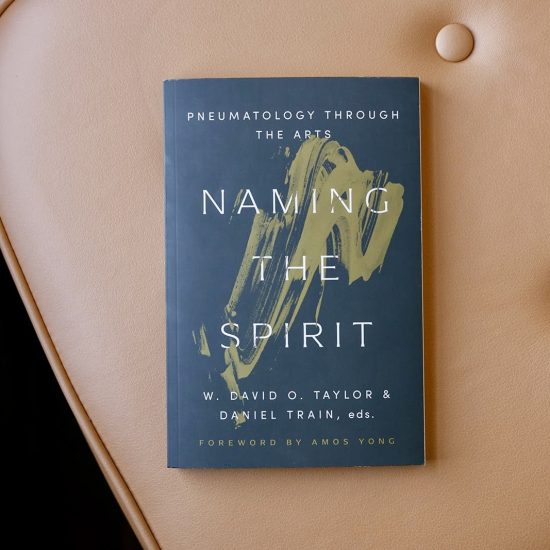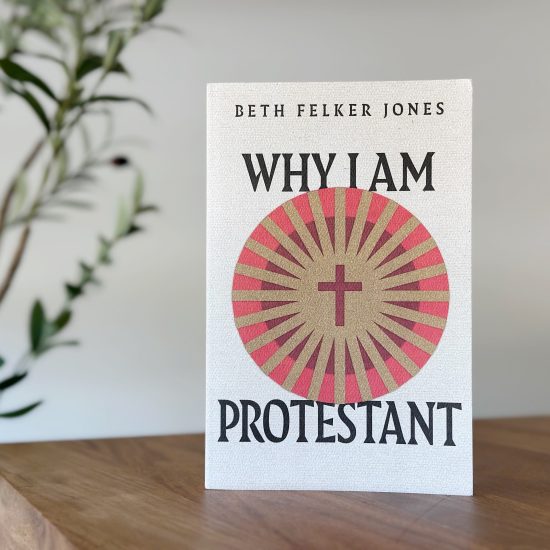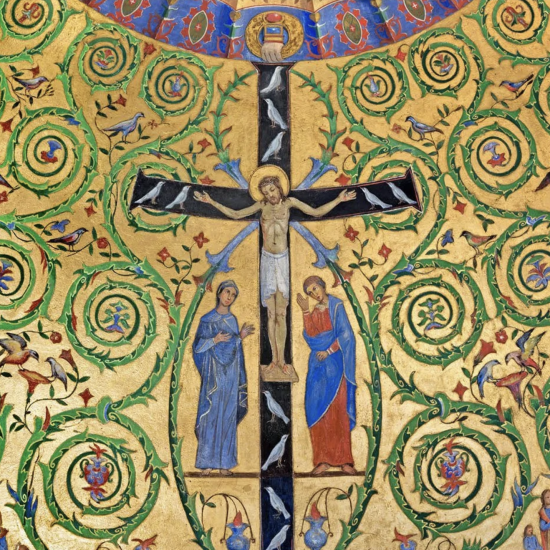Editor’s Note: This article is the second in a seven-part series examining some aspects of the current conflict between the Missouri Baptist Convention and five related institutions.
What role, if any, has theology played in the continuing legal struggle between the Missouri Baptist Convention and five related entities? The answer depends on perspective — the current legal conflict either is a direct result of theological differences or it’s simply a struggle for political control. The two issues may be intertwined.
Inerrancy
Some Missouri Baptists believe that decisions by trustees of The Baptist Home, the Missouri Baptist Foundation, Word&Way, Windermere Baptist Conference Center and Missouri Baptist University in 2000 and 2001 to create self-electing boards is a result of failure to recognize or accept biblical inerrancy, a view on the accuracy and trustworthiness of the Bible.
Factions — sometimes pegged as moderate, liberal, conservative or fundamental — within the Southern Baptist Convention debated biblical inerrancy, viewed by many as the primary issue in a fight over the convention’s direction throughout the 1980s and early 1990s. In the early ’90s, Missouri Baptist leaders acknowledged that the national struggle had come to Missouri.
The inerrancy issue surfaced more concretely in 1994 when Robert Garringer, pastor of First Baptist Church, Memphis, made a motion that would have required members of convention committees and agency boards to “demonstrate adherence” to biblical inerrancy. His motion was referred to the committee on continuing review. Messengers defeated a similar proposal in 1995.
Garringer brought up the issue in different formats at several annual meetings throughout the 1990s, switching from inerrancy to adherence to the Baptist Faith and Message as a requirement. Messengers defeated his motion in 1996, and in 1997, the measure was ruled out of order.
Inerrancy surfaced as part of the nominating committee process in 1996. At the annual meeting that year, then-committee chairman Gerald Davidson, pastor of First Baptist Church, Arnold, accused the majority of committee members of removing names of nominees because they were biblical inerrantists. Despite Davidson’s statement, messengers approved the nominating committee’s slate.
Although by 2000 many Missouri Baptist leaders began to define the struggle in political terms, they often acknowledged that beliefs about inerrancy still played a role.
In an extensive interview that year with then-Word&Way managing editor Tim Palmer, Roger Moran discussed the convention’s future. “Will we be SBC or CBF (Cooperative Baptist Fellowship)? But behind that is Scripture — God’s Word — and how seriously we’re going to take it.”
Moran, a layman from Troy, spearheaded an effort, dubbed Project 1000, to set the MBC on the same conservative course the SBC already had followed. Project 1000 participants embraced a goal to get candidates whom they considered theologically conservative elected as MBC officers, with a conservative majority within five years. The group promoted its first officer slate in 1998.
Project 1000 also determined a list of criteria to be used to determine which Missouri Baptists should be eligible to serve as MBC officers, committee members or board trustees. According to the Word&Way’s Sept. 28, 2000, issue, the group’s first criteria was commitment to the “Project 1000 view of biblical inerrancy.”
In 2000, then-MBC president Jay Scribner, pastor of First Baptist Church, Branson, and Davidson listed inerrancy as the primary issue and the primary solution to a growing conflict between Missouri Baptists.
“I wish the day would come when all Missouri Baptists said, ‘I’m not going to be a part of any political effort. I’m only going to believe the infallible, inerrant Word of God. I’m going to teach it, preach it, share it, endeavor to live it and give for it.’ Then we can be united,” Davidson said in an interview in September that year.
In a similar interview, Scribner noted, “I think it’s indicative of extreme arrogance that we even bring the Word of God into question.”
He added that the Bible should reunite Missouri Baptists. “To me, the primary point of unification must center around embracing the principles and precepts of God’s infallible Word,” he said.
As a Project 1000 participant in 2000, Ballwin Baptist Church pastor Bob Curtis also pointed to biblical inerrancy as his primary issue. Curtis was MBC president when the convention and six affiliated churches filed legal action on Aug. 13, 2002, against the five entities.
Legal action
Theology seemed to fade as legal issues emerged. Most entity heads pointed to liability concerns as primary reasons for changing their charters to create self-electing boards. Convention leaders responded that the agencies had no legal right to unilaterally make those changes. Messengers to the 2001 annual meeting directed the Executive Board to take whatever means necessary to get the institutions to rescind their new charters. Curtis appointed individuals to a legal task force in December that year, with First Baptist Church, O’Fallon pastor Gary Taylor as chair.
Focus turned to interpretation of Scripture shortly after the MBC filed its legal action.
At the 2002 annual meeting, the task force reported to messengers via a video presentation. Speaking for the task force, Taylor outlined why I Corinthians 6 — which instructs believers to settle disputes among themselves rather than to go to court — did not prohibit the convention’s legal approach.
The passage didn’t apply, the task force said, because the convention was only responding to a legal course the entities already had chosen. The charters are legal documents that had to be filed with a legal body — in this case, the Missouri Secretary of State. The MBC was only “defending itself” and trying to “undo what we believe was wrongly done,” Taylor said.
The I Corinthians passage applies to “personal offenses” instead of “non-personal offenses.” The Scripture does not apply to agencies or corporations, Taylor said. “Our case does not name any Christian individuals as defendants. We name only corporations.”
The task force used reasoning supplied by Larry Burkett in his book, “Business by the Book,” which also refers to Acts 16:37, in which Paul publicly takes the Roman government to task for putting him in prison without a trial.
The passage applies when believers would be harmed, Taylor said. In I Corinthians, believers would have been harmed by a lawsuit. In the MBC case, believers would be harmed if the convention took no action.
In its report, the task force said the convention had followed Matthew 18 to try to restore the entities. Matthew 18 records Jesus’ instructions in steps to follow when a believer wrongs another Christian. When that approach failed, Taylor said, the Executive Board had no choice but to pursue a resolution through the courts.
Although little response to the I Corinthians argument has appeared in print, individuals and churches, most recently Windsor Baptist Church, Imperial, have questioned the MBC’s reasoning.
In an “open letter” to MBC officers and the Executive Board sent in August, Windsor members noted “First Corinthians 6:1-8 clearly prohibits brothers and sisters in Christ from suing each other in secular courts. We see no exceptions for corporations or business dealings or some other way to characterize the dispute.”
The church sent copies of the letter to all pastors and directors of missions on Aug. 25.
Entity response
Institutional heads, their trustees and leaders of the so-called “moderate” camp apparently have rarely responded to theological charges. In a series of interviews a few months ago, agency leaders acknowledged that theology plays a role in the current conflict, primarily because the people involved are Christians.
*MBU
MBU president Alton Lacey emphasized that university faculty and staff adhere to a “strong statement about Christian education.” The institution is grounded in biblical teaching and Baptist heritage. The conflict, he believes, is the way in which Scripture is interpreted and applied to individuals’ understanding of the way in which the university should be controlled.
“The issue of control both is a theological issue and…not a theological issue,” he said. “It is not a theological issue in that no one ever expressed any problem with this institution theologically.
“But obviously, theological beliefs inform the power-and-control issue because whoever is in power and control will exert their own theological beliefs over this institution. That includes how the Bible is to be interpreted, the role of women in ministry, marriage and family relationships, and whether the Baptist Faith and Message 2000 is a creedal statement or not.”
Lacey said theological understanding also would affect choices for trustees, faculty and administrators.
Theology spills over into the political realm when one group’s theological understanding governs choices. “If indeed trustees can only be from Project 1000, then certainly theological beliefs are going to enter into the picture, so then it does become a theological issue.”
Theology translates to political maneuvering Lacey said. He noted university trustees did not want to be governed by any single group’s theological interpretation.
*Windermere
Windermere president Frank Shock said he views the controversy as a political rather than theological conflict. “I never thought of it as a theological battle,” he said. “Most Baptists are in the center.”
*Foundation
“It is not a theological conflict, but theology plays a role because we are Christians,” Foundation president Jim Smith said. “It is a theological issue only in the sense of how we relate to one another and how we focus on or diminish the God-given missions we all have.”
Smith called Foundation trustees “deeply spiritual” and “wonderful, committed Christians.” Their spiritual commitment guides their decisions as trustees.
*The Baptist Home
Larry Johnson, president of The Baptist Home, thinks first of ministry rather than theology. “When I think of The Baptist Home…I think of ministry,” he said. “The convention has made it [theology] an issue. I can’t remember being asked a question of theology…. I have been challenged on the legal issues.”
*Word&Way
Word&Way editor Bill Webb said he believes the news journal’s trustees made decisions based on biblical principles. “Word&Way’s trustees worked hard in a difficult situation to obey the biblical injunction to be faithful to carry out responsibilities entrusted to them,” he said, citing Luke 12:35-48. Jesus used parables about servants to teach His disciples that believers would be held accountable for everything entrusted to them.
“The responsibility of a Baptist agency trustee includes the development, protection and stewardship of that institution, faithfully ensuring both its effectiveness and integrity. The Bible never implies that faithfulness in pursuing a God-given task will be easy, only that it is absolutely necessary for the faithful servant,” he added.
Political issues
Although theology, particularly biblical inerrancy, has played a role in the conflict, some observers see political control as the primary factor. The third part of the Word&Way series will examine the political background and ramifications.
Additional links to the entire series:
Beyond Rhetoric, Part 1: Overview
Beyond Rhetoric, Part 2: Theology
Beyond Rhetoric, Part 3: Politics
Beyond Rhetoric, Part 4: Accountability
Beyond Rhetoric, Part 5: Assets
Beyond Rhetoric, Part 6: Insurance
Beyond Rhetoric, Part 7: Reconciliation






